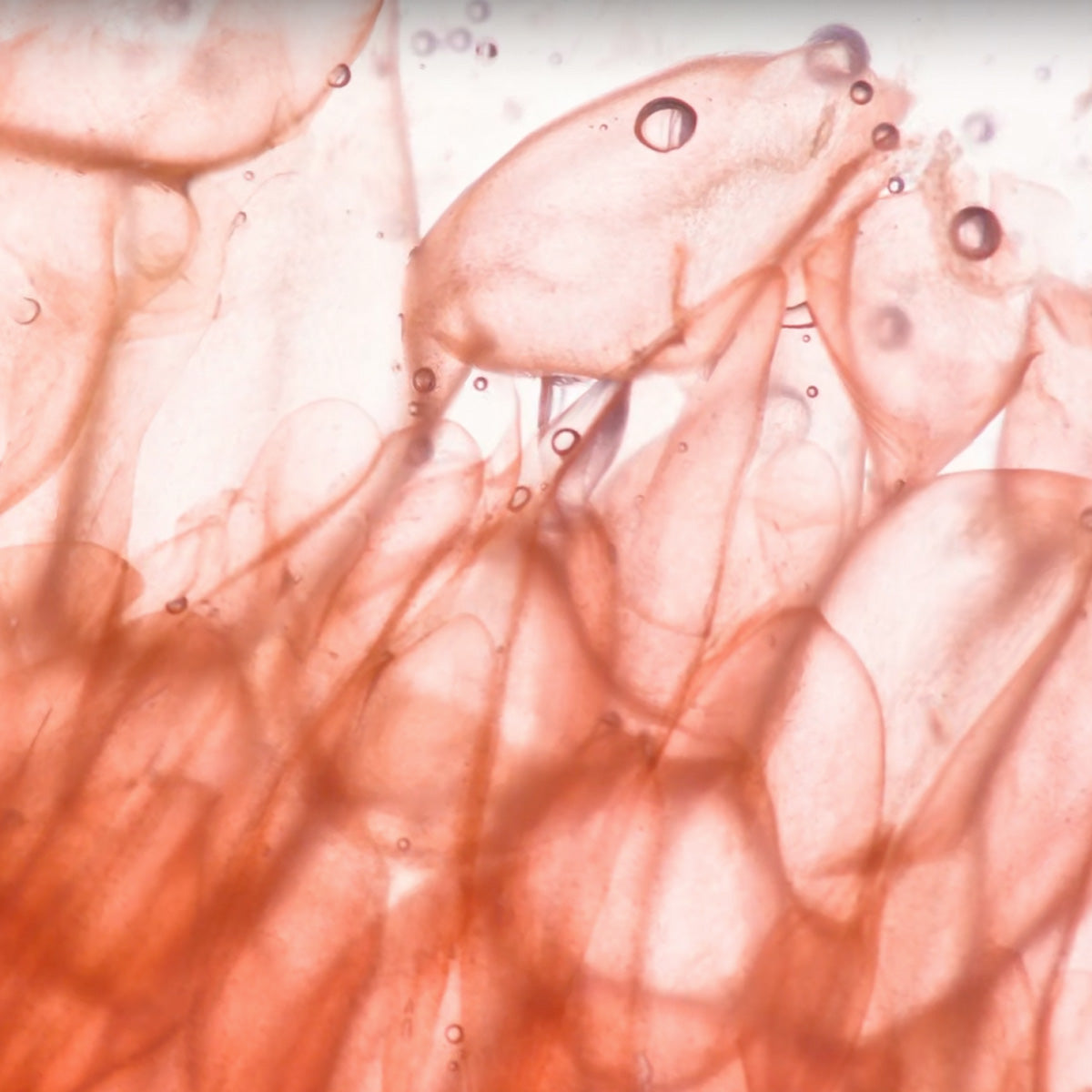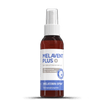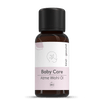For many women, hair loss is an emotionally stressful issue that goes far beyond mere aesthetics. Especially when more hair than usual suddenly falls out while combing or washing your hair, the worry becomes intense: "Will it stay like this forever?"
However, female hair loss is a widespread problem that is discussed far too little. In this article, you'll learn what female hair loss means, what the underlying causes are, and what options there are to strengthen your hair.
The most important things in brief
Over 95% of women with hair loss suffer from hormonal-related loss, often due to hypersensitivity to male hormones.
Alopecia areata affects individual patches of the scalp, usually due to autoimmune reactions, while diffuse hair loss causes the entire hair to thin, often due to stress or nutrient deficiencies.
Adequate intake of vitamin D, iron, folic acid, and B vitamins can promote hair growth in cases of nutrient deficiencies – however, medical evaluation is important.
What is feminine hair loss?
Losing 60 to 100 hairs a day is completely normal. This natural hair cycle, which lasts about seven years, ensures that new hairs grow back as soon as old ones fall out. Hair loss (effluvium) occurs when significantly more hairs fall out and the hair becomes visibly thinner. Visible hair loss is called alopecia and can occur gradually or suddenly [1,2]. The causes are varied, which often complicates diagnosis and increases the emotional stress on those affected.

The most common causes of hair loss
Hair loss in women can be caused by numerous factors. Hormonal changes, nutritional deficiencies, or certain diseases are common triggers. Over 95% of cases involve hormonal hair loss, which is often genetic [3].
Hormonally induced hair loss
Androgenetic alopecia is the most common form of hair loss. It is caused by hypersensitivity of the hair roots to male hormones. This leads to thinning hair, especially at the crown. However, complete baldness, as occurs in men, usually does not occur [3-6].
Hormonal changes, such as those during pregnancy, after childbirth, during menopause, or after discontinuing hormonal contraception, can also trigger temporary hair loss. In most cases, hormone levels stabilize on their own, but the psychological stress often persists [4].

Alopecia areata
Alopecia areata (also known as circular hair loss) occurs suddenly and in a localized area. Small bald patches often appear unexpectedly. The exact cause is not fully understood, but autoimmune reactions and inflammation are suspected as triggers. While hair regrows naturally in some cases, it stops permanently in others. Cortisone or minoxidil may be a treatment option, but they offer no guarantee [7,8].
Diffuse hair loss
With diffuse hair loss, the entire scalp loses its hair volume. This type of hair loss often manifests as thinning hair, which is noticeable in tied hairstyles or on the scalp. Causes range from nutrient deficiencies and thyroid disorders to stress and medication side effects. Diffuse hair loss also frequently occurs after serious illnesses or chemotherapy. The good news: After treating the underlying cause, hair regrows in most cases [1,3].

Did you know?
We lose more hair in summer than in winter. This phenomenon has also been observed in animals and is likely related to changes in sunlight.
Other causes
In addition to health and hormonal causes , external influences can also play a role.
Hairstyles and styling
- Hairstyles such as tightly tied braids or tight buns can put stress on the hair roots due to the constant tension and lead to hair loss. Looser hairstyles or avoiding tight tying can help here [12].
Seasonal hair loss
- Interestingly, hair loss varies throughout the year. Studies show that more hair falls out in summer than in winter. This phenomenon has also been observed in wild animals and is likely related to temperature fluctuations and solar radiation [13].
Feminine hair loss can be stressful – but there are solutions. The Golden Millet & L-Cystine - Be2 Hair Formula is specially developed to strengthen your hair from within. With high-quality golden millet seed extract, L-cystine, and carefully dosed micronutrients such as zinc and B vitamins, it supports your hair's natural growth and helps strengthen the hair structure. Free from unnecessary additives and with purely natural ingredients, this product offers gentle and effective support for visibly healthier hair.
✨ For fuller, stronger hair – discover the natural solution!
How can nutrition help?
A balanced diet can have a major impact on hair health – especially when hair loss is caused by nutrient deficiencies .
Important nutrients for healthy hair growth
The most important vitamins and minerals include:
- Vitamin D
- iron
- Folic acid
- B vitamins

Adequate intake of these nutrients can support hair growth. However, caution: dietary supplements should only be taken after a medical diagnosis, as overdose can have negative consequences [9,10].
Natural active ingredients
Certain natural active ingredients such as miliacin from golden millet , cystine , or biotin are often associated with healthy hair growth. Many women report positive experiences with these supplements, although scientific studies are scarce [11]. It is important to note that dietary supplements should always be used in conjunction with medical advice.

Diagnosis & Therapy
The first step in addressing excessive hair loss should be a medical examination. A detailed medical history and blood tests can reveal whether there are nutrient deficiencies , hormonal imbalances , or other causes.
Therapy approaches
Depending on the diagnosis, there are different treatment options:
- Hormonal therapies: Hormonal preparations can help with hormonal-related hair loss.
- Topical treatments: Products such as minoxidil promote blood flow to the scalp and hair growth.
- Dietary supplements: A targeted intake of vitamins and minerals can compensate for nutrient deficiencies.
- Hair transplantation or hair replacement: In severe cases, these options can provide a long-term solution [9,14].



![Zinc Capsules [Zinc Bisglycinate]](http://cellavent.de/cdn/shop/files/CH_essentials-zink-kapseln-Produktbilder_2025.png?v=1760952204&width=104)


















Leave a comment
This site is protected by hCaptcha and the hCaptcha Privacy Policy and Terms of Service apply.